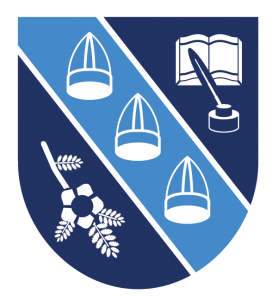In October, four CVC teachers attended an excellent CPDL event at Sawston Village College, which focused on memory and how we help pupils to improve their recall. The timing was perfect in the context of curriculum changes and the increased emphasis on terminal exams and the event posed the question, ‘how can we teach in ways that help pupils to remember?’ and drew on the work of cognitive scientists as well as practice at SVC to explore how memory works and how we can provide ‘unforgettable teaching’.
Source: Unforgettable Teaching: how can we teach in ways that help pupils to remember?
The above link takes you to SVC’s blog on the event, as well as the resources that each speaker kindly shared. Below is a brief summary from CVC staff who attended the sessions:
1. Keynote talk: Professor Sue Gathercole, Director of the Medical Research Council’s Cognition and Brain Sciences Unit, explained the science behind the mental processes involved in memory as well as the characteristics of different memory systems (procedural, semantic, episodic, working). The session helped to clarify what we mean by ‘memory’ and stimulated thinking about the challenges that memory presents for our teaching. In particular, it made us consider carefully how far we overload ‘working memory’ when giving instructions or in the complexity of a task. Also, since there is a link between poor working memory and low attainment (in Eng/Ma), we were asked to think about what we do to support this specific challenge for lower-attaining pupils. The nature of delivery in teaching (too much talking at once before a task, for example), the demands of note-taking, essay planning, the integration of multiple sources of information are some aspects of what we do in the classroom that need more careful consideration in terms of demands on working memory if we have not helped pupils to place information into semantic memory.
2. Francis Rowland, Lead User Experience Designer at the European Bioinformatics Institute led a session on visual note-taking. The session included ideas linked to the concept of mind-mapping. Research suggests that there are benefits of taking notes and summarising over replicating word for word (we don’t remember everything we hear, but we remember the meaning and hold a ‘residue’ of what was heard); by making doodles/sketches greater cognition is required, so the learning is deeper and the memory more embedded. Overall, benefits to the students were detailed as greater engagement, deeper thinking, increased attention, improved creativity, increased lateral thinking – all of which increase the ability for later recall. The hypothesis is that increased synthesis (process) leads to an increased connection with the content being summarised. It was recommended that students are encouraged to doodle, and shown how to make visual notes. It was recommended that teachers encourage rather than discourage ‘on task‘ doodling in books.
4. James Woodcock, Assistant Principal and history teacher, focused on revision strategies and skills in his session. In light of the reintroduction of terminal exams, he asked how we can best help students to revise and recall the information needed to succeed in the new style GCSE exams. The conclusions drawn from the studies carried out at Sawston showed that for students to remember information, they needed to be emotionally engaged with the topic, to actually have to think about it (e.g. working out why a verb behaves in a particular way rather than just being told) and for the information to have meaning and context. It was also felt that students in KS3 are not necessarily required to use and recall knowledge to the same extent as in KS4, so it is therefore important that we equip them with time and strategies that will lead to effective revision in both key stages – what students think is effective revision might not do the job!
Suggested strategies included:
- setting up students with a revision pack at the start of year 11 and setting regular revision tasks throughout the year – e.g. setting regular revision homework
- making revision more frequent and routine, both at home and in lessons – returning to information from previous lessons more regularly to make sure it is embedded
- adapting teaching structure – teaching followed by a revision activity and a revision homework, followed at some point by revision based on earlier topics
- increase expectations of knowledge and recall at KS3 (e.g. closed book milestone testing, factual testing)
Suggested activities within lessons included:
- pre-testing – e.g. a mutiple choice test on a topic prior to studying it, followed by a follow-up test at the end of the topic
- cards with topic areas / vocabulary / verb forms (etc), which are passed out at random. Students then have to recall and say three things associated with that card
- approaching information in two stages – working out and then learning – e.g. working out a new verb form (drawing on previous understanding) and then learning it
If you want to know more, please talk to Jodine, Josie, Andy or Geraint, who all attended this event and produced the above report. There are more examples of the strategies shared in all the sessions, including useful downloads, on the SVC blog – use the link at the top of this page.

Reblogged this on ProfLearnSVC and commented:
Thanks to Cottenham VC for this helpful summary and outside perspective, regarding our Unforgettable Teaching conference…
LikeLike